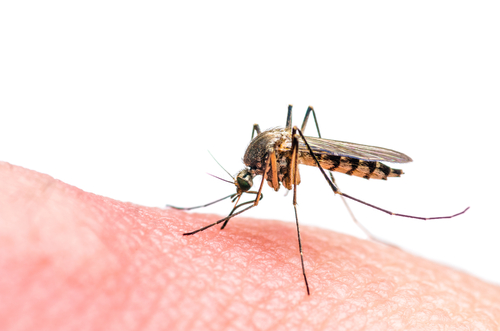
A team of researchers from the Kansas State University (KSU) Biosecurity Research Institute recently conducted a study with Culex species mosquitoes from across the country to find ways to stop the spread of Zika virus.
Findings from the study were published in the journal Vector-Borne and Zoonotic Diseases. Research teams from Rutgers University, the University of Florida and the U.S. Department of Agriculture also participated in the study.
“It’s very important to know that Culex mosquitoes are not able to transmit Zika,” Dana Vanlandingham, lead author of the study and assistant professor of virology in the College of Veterinary Medicine at KSU, said. “It enables people to target their control strategies so that they aren’t wasting time and effort on a mosquito that isn’t transmitting Zika virus.”
The KSU research team found that Zika virus in Culex mosquitoes did not multiply and has instead disappeared in the species.
The U.S. Centers for Disease Control and Prevention (CDC) identified Aedes aegypti, also known as the yellow fever mosquito, and Aedes albopictus, also known as the Asian tiger mosquito, as two species that transmit the Zika virus. Both species of mosquito are present in many parts of the United States.
“We need to know which mosquitoes to target and which mosquitoes not to target because mosquitoes live in different environments,” Vanlandingham said. “Some mosquitoes are found outside and some are more in people’s homes. You need to know this in order to target your efforts.”

